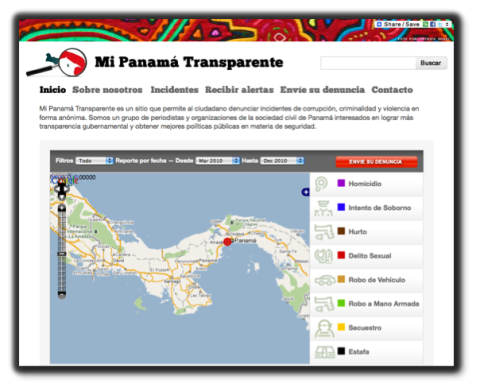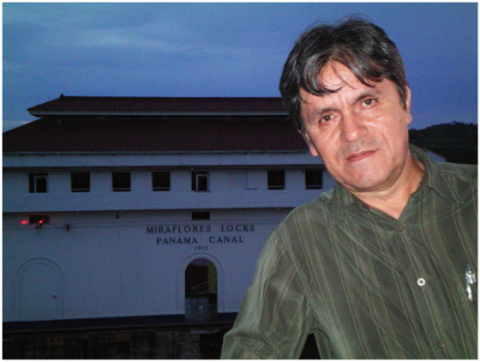
Citizen reports of crime and violence are posted on Mi Panama Transparente.

Knight International Journalism Fellow Jorge Luis Sierra at the Panama Canal.
As a Mexican journalist living at the U.S.-Mexico border, I recognize the footprints of organized crime: drug-related executions, drug seizures, and drive-by shootings. I have seen these same signs in Panama. That’s why I think my project as a Knight International Journalism Fellow will be crucial for my Panamanian colleagues.
Citizens can tweet or submit an online form with their crime report. Soon they will be able to text as well. The reports are geo-tagged on a digital map using Ushahidi, an online platform that originated in Kenya to track violence during the elections. The citizen reports will appear on the online map, and get a green check mark once trained journalists have confirmed the information. We’ve had a great deal of media coverage since the site launched, so the public is becoming acquainted with the site. We plan an extensive campaign in the coming weeks.
Some of the first reports detailed charges of corruption among public officials. It was very exciting to see the reports start coming in! Something else that’s thrilling is the response from local media. We’ve secured an unusual level of cooperation from major news outlets, including three newspapers and two television stations. We have also reached agreement with a number of other media partners and non-profits including Journalists for Freedom of Expression and Transparency International.
Once the map is populated with these citizen journalists’ reports, Panamanian journalists will be able to investigate and report on crime with far more success than ever before.
A big challenge is that outside of Panama City many news organizations rely on freelance journalists, who often lack formal training. So, we’ve just secured a grant from the U.S. Embassy to support training of provincial journalists.